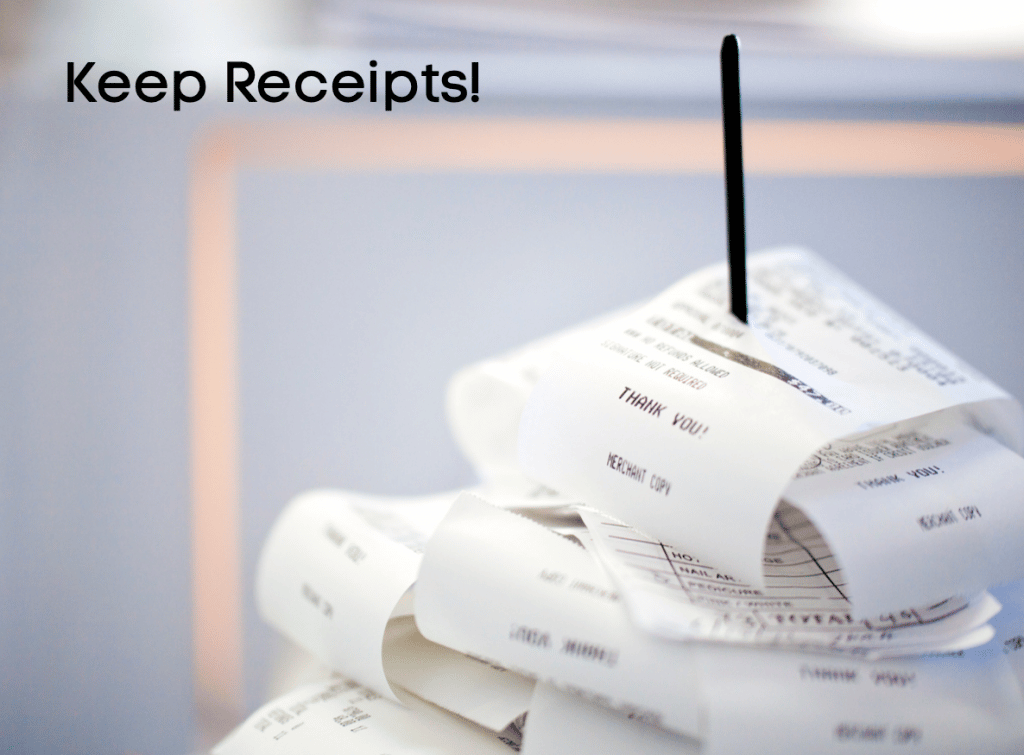Right at the bottom of the list of “Things Every WooCommerce Customer Is Excited To Do Every Year” is having the responsibility to file and pay taxes. But if there’s one thing that’s certain, it’s that it needs to be done. Did you know, however, that there are ways and means to approach the filing of taxes that could actually save you money?
With the official rules and regulations for filing and paying taxes weighing in at over 70,000 pages in the USA, it’s no surprise that Forbes has reported that over 90% of US business owners overpay on their taxes. You don’t have time to run your business and memorize an entire library’s worth of tax code – neither do we. So let this be your go-to guide for saving money (legally) on your taxes by examining and reviewing some of the best practices your businesses should be observing – especially now that you’re stuck at home and have the time to implement some administrative changes! Check out these Woocommerce tax tips for 2023!
1. Costs and Expenses
Your first step as a business owner here will be to start getting a detailed log of the costs and expenses that your business incurs over the course of a fiscal year. While this can be most efficiently managed in an accounting software like QuickBooks (Tip: automatically sync your WooCommerce store data with QuickBooks using MyWorks!) – there are other ways to manually keep track of this information as well, if you wish! But why is this important if you’re making money at the end of the day anyway? Well, the taxes you owe are based on your profit:
Profit = Revenue – Expenses.
So the more you invest on your business, the less tax you are going to have to pay. Many of your expenses are therefore your “tax deductibles” – and you’re not going to have to pay tax on them. So, what sort of expenses can you qualify as “tax deductibles” and save money on? In most countries, all legitimate business expenses are tax-deductible — payroll, equipment, travel, and advertising. In the context of 2020, wherein you may have been forced to work from home, it may be worth investigating your local tax-deductible regulations as they apply to home office expenses such as computers, wi-fi, and stationary. Unfortunately, not all expenses qualify for the same amount of taxation rebates, (sorry, office pinball machine!) which we’ll take a look at below.
2. Deductibles and Depreciation
So which expenses, specifically, do tax codes generally allow us to subtract from our gross earning total to determine our declarable profit? Operating expenses, as well at the cost to seller of goods sold are generally the foremost deductions a business makes – as they are costs incurred in the production of revenue. Initial equipment costs – say, buying a printer for your home office – are not generally deductible, but the depreciation of this equipment CAN be a deductible. Though the depreciation of a piece of equipment is a “non-cash” expense, the slow dwindling of the resale value of this equipment can generally be deducted from your gross earnings at about 10 – 20% of the price of the equipment a year.
3. Deductible vs. Non-Deductible Expenses
So now we know that deductible expenses can reduce your taxable income, saving you money. These can include business-related expenses, charitable contributions, investment losses, and employee payroll. But which expenses are non-deductible – meaning they’re going to have no effect on your taxable income? In general, if it’s a personal expense, it’s not going to be deductible. This means that refueling vehicles, personal rent, vacations, and luxury items will not qualify. There exist, however, exceptions to the “non-deductible” nature of personal purchases, known as context-specific deductions. For example, filling your car with fuel gas may be considered a business expense if you are traveling for the purpose of a business meeting or event. Similarly, vacation expenses may qualify for a degree of deduction if the vacation you are going is for the purpose of bringing a client with you in order to entertain them. It’s important to consider ways in which working from home can be made into a context-specific deduction – but it would be beneficial to you to research the laws surrounding context-specific deductions in your area as they often vary by region.

4. How can tax deductibles save you money?
The following is a handy list of deductions that may apply to you. These are USA specific stipulations but these major context-specific deductions often have similar counterpart laws in other countries – so follow up on them if applicable!
Health Insurance
If your health insurance costs more than 10% of your gross income, you qualify for the IRS medical expense deduction and should speak to an accountant about the specific deduction you may be able to make.
Rental for a Home Office Space
Working from home? As an independent or self-employed contractor, you are eligible for “home office” deductions if you meet the following criteria:
a) Have a Designated Home Office Space: you must regularly and exclusively use your home office to conduct your business. You can’t occasionally set up your laptop in your bedroom or lounge and call it an “office”
b) This home office must be your principal place of business – this means you use your office regularly and substantially to meet with clients, conduct administrative business, and log hours.
How much can you mark off as a home office deduction?
The square feet of your office space [up to 300] x $5 = Tax deductible amount.
If your office space is 300 square feet, you can deduct $1,500 yearly

Travel
Though for many of us, remote work has become the norm, travel constitutes an essential part of certain businesses. For instance, your business may require a vehicle of its own; in this case, you need to decide whether you would like to deduct the mileage used or the actual expense of the vehicle.
If you choose to file for a deduction via mileage, the IRS has announced the standard mileage deductible rate for 2021 at 56 cents per business mile – 1.7 cents down from 2020. If you opt to go with the actual-expense method, you can deduct costs of depreciation, garage rent, fuel and oil, tires, license fees, and more.
Meals
The IRS stipulates that deductions of up to 50% can be made for meals, provided that:-You or another employee is traveling or an employee is present along with clients, employees, potential new customers, or consultants.
– The meal is not lavish
– The cost is not for a personal meal.
Though the IRS used to allow deductions of up to 50% for entertainment – this is no longer the case. For instance, if you were to take a client to dinner and a show for professional gain, you would be able to deduct 50% of the price of the meal you ate, but not deduct any of the prices of the show ticket. These regulations are subject to quite frequent change – so if you’re unsure what is allowed and what isn’t – ask your accountant!
Business Equipment
For your equipment to qualify for a tax deduction, it must be absolutely necessary to ensure the proper functioning of your business and not used for any personal activities. As an example – your printer can qualify as business equipment, but it must be in your office and used solely for work. If this is a home office, you will need to ensure that it is used strictly in running your business and not by other members of your family. In the USA, your business can qualify for up to $500,000 in tax deductions for equipment costs alone, so this is an avenue of tax deduction that is incredibly worth your while to explore.
5. Don’t Mix Business and Personal Expenses
Though this one seems obvious, it can be relatively easy to conflate one’s own finances with that of one’s business – especially as an independent company owner or individual enterprise. The first step in maintaining a logical and manageable financial record from which to calculate your tax deductibles is to create a separate bank account for all the cash flow in and out of your business. Once you’ve done this, you can link this bank account to your cloud accounting software – and you can start auto-tracking, logging, and categorizing your income and expenses. Though this automated process makes things much easier, it’s also a good idea to keep a hard copy of the receipts and invoices from all the transactions you process – and this could be the backup that helps you balance the books perfectly at the end of your financial year.

6. Last, but certainly not least…
If there’s one golden rule that we can give to help you through the complicated process of best financial practices for saving money on taxes, it’s to track everything. From micro-transactions to large scale property investments, the key to successfully mastering the art of saving money on tax deductibles is to be aware of the eventual destination of every cent that passes through your business. Keeping these records in an accounting platform like QuickBooks means you can leverage this data in combination with your sales/revenue to provide meaningful reporting and metrics to better run your business.
That’s where MyWorks Sync comes in… MyWorks Sync imports all of your sales information, customer databases, product specifics, sales tax numbers, and payment information from WooCommerce into QuickBooks and categorizes it into corresponding accounts. Combine this with the ease of uploading receipts to QuickBooks and your books will be effortless!
Reporting and Analytics
Reporting and analytics are an essential aspect of managing e-commerce products and inventory. Xero enables businesses to track their sales, revenue, expenses, and profits when dealing with inventory and cost of goods – with customizable reports that provide insights into the business’s financial position, helping them make informed decisions. This also help businesses identify trends in their sales and inventory levels, can be used to adjust the business’s strategies to maximize its profits.
Conclusion
Managing products and inventory efficiently is critical for the success of any e-commerce business.
Integrating your e-commerce platform with Xero by using a tool like MyWorks can greatly streamline inventory and product management. Syncing your e-commerce and accounting platforms results in saving time, less manual errors, and better decisions based on real-time data.
By integrating your accounting and e-commerce platforms, you can focus on growing your e-commerce business and achieving your goals.














